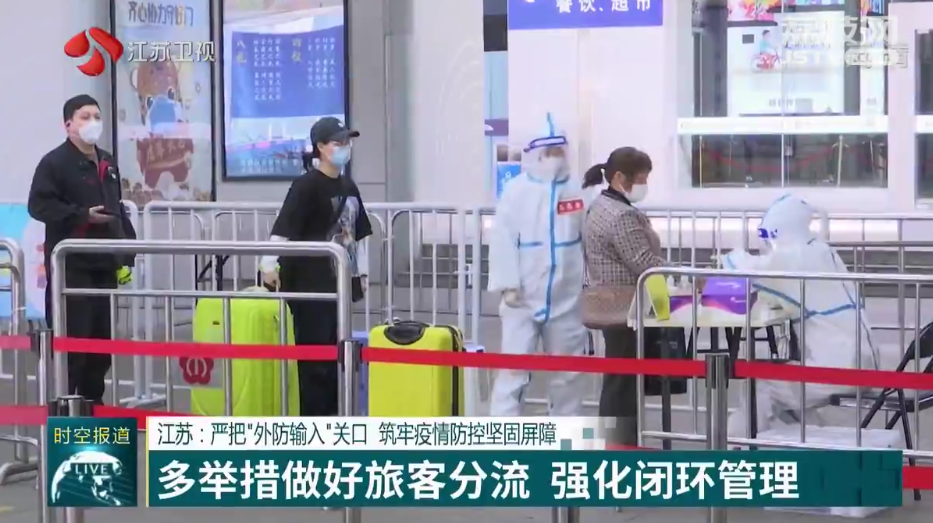East China’s Jiangsu province has stepped up its efforts to optimize the effective mechanism that is compatible with the COVID-19 epidemic prevention and control, and prevent the inbound transmission of the epidemic from overseas so as to ensure smooth traffic and logistics, and transport important supplies at stable prices.
Nanjing Railway Station requires all passengers to undergo health QR code inspection and screening when exiting the station. Passengers with an asterisk in their whereabouts QR code must present a negative nucleic acid test certificate valid within 48 hours, and then swipe the green health code to exit the station.

The train station has set up two one-way lines with the isolation bars, dividing the passengers who need to undergo rapid nucleic acid testing into those from low-risk areas and those from medium-high-risk areas.
At the nucleic acid testing service station, passengers are required to undergo nucleic acid sampling and antigen testing. Passengers with a negative antigen test can leave the station in less than 20 minutes.
According to Xu Bing, Chief of the Management Section of the Comprehensive Management Office of the Surrounding Areas of Xuanwu Lake, Nanjing, in the event that a passenger is tested positive antigen, they will immediately shut down the site, disinfect the site, guide the passenger to the observation room, and wait for the 120 ambulance to pick up and transfer.

Jiangsu closed 113 expressway toll stations, and set up 303 inspection sites at the toll stations, implemented point-to-point closed-loop management of vehicles and passengers from high-risk areas, and coordinated logistics to ensure the transportation of anti-epidemic goods and daily necessities.
Lianyungang has arranged for officials to be on duty at the checkpoints at expressway intersections 24 hours a day. At the same time, smart code scanners were deployed to improve the efficiency of inspections. Drivers and passengers can scan identity information, health code, and itinerary code without stepping out of the vehicles.
Ren Yanjie, Deputy Head of Lianyun District, Lianyungang City, said that they notified the visitor's information to each sub-district office, who determined whether the visitor was from a medium or high-risk area so as to conduct 14+7 days or 3+11 days isolation.

Nanjing receives about 3 million express deliveries every day. In order to effectively reduce the risk of transmission through express delivery and logistics, the express company will disinfect the transport vehicle and the general package of mail express in the vehicle as soon as possible when all express mail from international and domestic medium and high-risk areas arrives at the distribution processing site.
Luhe District of Nanjing has set up a centralized supervision warehouse for non-cold-chain imported food so as to implement centralized inspection, centralized sampling, and centralized disinfection, and builds a line of defense against inbound flow of virus from overseas with a full-process closed-loop supervision, while helping enterprises reduce risks and costs.






